
JOURNAL OF EXPERIMENTAL & THEORETICAL ARTIFICIAL INTELLIGENCE
Scope & Guideline
Pioneering Research in the Realm of AI and Computer Science
Introduction
Aims and Scopes
- Artificial Intelligence Applications:
The journal publishes research on the application of AI techniques in diverse fields such as healthcare, agriculture, finance, and robotics, demonstrating the versatility and impact of AI technologies. - Machine Learning and Deep Learning:
A significant focus is on machine learning and deep learning methodologies, exploring novel algorithms, architectures, and optimization techniques to enhance performance in classification, prediction, and decision-making tasks. - Optimization Algorithms:
Research on optimization techniques, including metaheuristic and hybrid approaches, is prominent, with applications in resource management, scheduling, and system efficiency. - Data Analysis and Processing:
The journal includes studies on data mining, feature selection, and data preprocessing, emphasizing the importance of effective data handling in AI applications. - Theoretical Foundations of AI:
Theoretical explorations into the foundations of AI, including decision-making models, cognitive frameworks, and algorithmic complexity, are also central to the journal's scope. - Interdisciplinary Research:
The journal encourages interdisciplinary studies that integrate AI with other scientific domains, fostering innovative solutions to complex real-world problems.
Trending and Emerging
- Explainable AI (XAI):
A significant trend is the increasing focus on explainability and interpretability of AI models, ensuring that AI systems are transparent and their decisions can be understood by users, which is critical for ethical AI deployment. - Federated Learning and Privacy-Preserving AI:
Research on federated learning and privacy-preserving techniques is on the rise, addressing the need for collaborative learning while ensuring data privacy and security, especially in sensitive applications like healthcare. - Integration of AI and IoT:
The convergence of AI with Internet of Things (IoT) technologies is a prominent theme, with studies exploring how AI can enhance IoT systems through intelligent data processing and automation. - AI for Social Good:
Emerging research is increasingly focusing on the application of AI for social good, tackling global challenges such as climate change, healthcare access, and education, reflecting a commitment to ethical and impactful AI development. - Neurosymbolic AI:
There is a growing interest in neurosymbolic AI, which combines neural networks with symbolic reasoning, aiming to create systems that leverage the strengths of both paradigms for improved reasoning and understanding.
Declining or Waning
- Traditional Rule-Based Systems:
Research focusing on traditional rule-based AI systems has decreased, likely due to the rise of data-driven approaches such as machine learning and deep learning, which offer more robust and adaptable solutions. - Basic Statistical Methods:
Studies employing basic statistical techniques without integration into advanced AI models are becoming less prominent as researchers seek to leverage more sophisticated methodologies to enhance predictive accuracy. - Single-Domain Applications:
There is a noticeable decline in studies focused solely on single-domain applications, as interdisciplinary approaches that combine multiple domains are gaining traction for their broader applicability and impact. - Static Data Analysis:
Research centered on static data analysis methods is waning, replaced by a focus on dynamic and real-time data processing techniques that are more relevant in today's fast-paced technological landscape.
Similar Journals

International Arab Journal of Information Technology
Pioneering Insights in the Realm of Information TechnologyWelcome to the International Arab Journal of Information Technology, a prestigious publication under the aegis of ZARKA PRIVATE UNIVERSITY in Jordan, dedicated to advancing the field of Information Technology. First established in 2008, this journal has made significant strides in disseminating high-quality research, achieving an impressive Q2 ranking in Computer Science (miscellaneous) and securing a notable 57th percentile position in the Scopus rankings. With a comprehensive scope encompassing various sub-disciplines of computer science, the journal is committed to promoting scholarly dialogue and innovation among researchers, professionals, and students. While currently operating as a subscription-only journal, it remains a vital resource for the academic community seeking to explore the latest trends and advancements in technology. The International Arab Journal of Information Technology is not only a platform for original research but also a vibrant hub for ideas that shape the technological landscape of the Arab region and beyond.
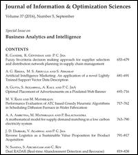
JOURNAL OF INFORMATION & OPTIMIZATION SCIENCES
Exploring the synergy between information science and optimization.JOURNAL OF INFORMATION & OPTIMIZATION SCIENCES, published by TARU PUBLICATIONS, is a vital platform for researchers and practitioners in the field of information science and optimization techniques. With a focus on the application of mathematical and computational methods to solve complex problems in various domains, this journal aims to advance knowledge and encourage innovative thinking. The journal's ISSN is 0252-2667 and the E-ISSN is 2169-0103. Although currently not Open Access, it strives to provide high-quality research that significantly contributes to the industry. With a commitment to rigor and excellence, the JOURNAL OF INFORMATION & OPTIMIZATION SCIENCES is essential for anyone dedicated to enhancing their understanding and application of optimization methodologies in an ever-evolving technological landscape.
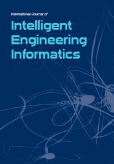
International Journal of Intelligent Engineering Informatics
Connecting Minds in Intelligent Engineering and AI.International Journal of Intelligent Engineering Informatics, published by INDERSCIENCE ENTERPRISES LTD, stands at the forefront of research in the interdisciplinary domains of computer science, artificial intelligence, and human-computer interaction. With an ISSN of 1758-8715 and E-ISSN of 1758-8723, this journal serves as a vital resource for researchers and professionals seeking to explore the latest advancements in intelligent engineering and informatics techniques crucial for the evolution of modern technologies. Although currently not an open-access publication, it provides a necessary platform for disseminating high-quality research; its impact factor continues to grow, attracting a diverse readership interested in signal processing, software development, and computer vision. Covering innovative topics from 2022 to 2024, the journal is committed to fostering scholarly dialogue that paves the way for emerging trends and applications in the field, ensuring its relevance and significance in today's rapidly advancing technological landscape.
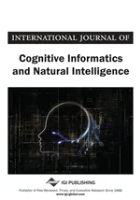
International Journal of Cognitive Informatics and Natural Intelligence
Unveiling New Frontiers in Cognitive InformaticsThe International Journal of Cognitive Informatics and Natural Intelligence, published by IGI Global, is an essential resource for researchers and professionals exploring the intersections of cognitive informatics, artificial intelligence, and human-computer interaction. Since its establishment in 2007, this journal has focused on advancing the understanding of cognitive systems and their applications in natural intelligence, contributing significantly to the fields of software engineering and interface design. Operating out of the United States, the journal aims to disseminate high-quality research and innovative methodologies to foster interdisciplinary collaboration. Despite its current standing in Q4 quartiles for the fields of Artificial Intelligence, Human-Computer Interaction, and Software, it serves as a vital platform for emerging scholars and seasoned professionals alike seeking to explore new frontiers in cognitive technologies. While it does not provide direct open access, these publications are instrumental in shaping academic discourse, and contribute to ongoing advancements in how we understand and integrate cognitive science into practical applications.
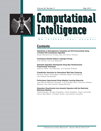
COMPUTATIONAL INTELLIGENCE
Pioneering Research in Computational Intelligence and InnovationCOMPUTATIONAL INTELLIGENCE is a prestigious, peer-reviewed journal published by Wiley, dedicated to advancing the field of artificial intelligence and computational mathematics since its inception in 1985. With an impressive track record reflected in its Q2 ranking in both the Artificial Intelligence and Computational Mathematics categories for 2023, this journal is a leading resource for researchers, professionals, and students seeking to explore cutting-edge methodologies, theories, and applications that underpin computational intelligence. The journal is indexed in Scopus, holding a remarkable rank of 18/189 in Computational Mathematics, placing it in the top 10% of its field, and ranks 111/350 in Artificial Intelligence. Although it does not offer open access, articles are readily accessible for institutions, ensuring a wide outreach within the academic community. With its commitment to fostering innovation and critical thought, COMPUTATIONAL INTELLIGENCE continues to be an essential platform for disseminating high-quality research that shapes the future of technology and mathematics.

IEEE Computational Intelligence Magazine
Pioneering Research for a Smarter TomorrowIEEE Computational Intelligence Magazine, published by the esteemed IEEE-INST ELECTRICAL ELECTRONICS ENGINEERS INC, is an essential resource for researchers and professionals in the fields of Artificial Intelligence and Theoretical Computer Science. With a robust Q1 ranking in both categories for 2023, this magazine stands out as a leader in disseminating cutting-edge research and innovative applications within computational intelligence. As an invaluable conduit for knowledge, it covers a diverse range of topics, including but not limited to machine learning, neural networks, and data mining. The magazine is particularly recognized for its interdisciplinary approach, bridging gaps between theory and application while contributing to advancements in technology and society. Although it does not offer open access, the insights provided are critical for staying at the forefront of this rapidly evolving discipline. Join a community of like-minded scholars and practitioners by exploring the latest findings and trends published from 2006 to 2024, operating from its headquarters at 445 Hoes Lane, Piscataway, NJ, United States.
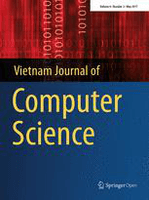
Vietnam Journal of Computer Science
Pioneering research that drives computational excellence.Vietnam Journal of Computer Science, published by World Scientific Publishing Co Pte Ltd, serves as a prominent platform for researchers and professionals in the rapidly evolving field of computer science. Launched as an Open Access journal in 2013, it aims to disseminate high-quality research across various subfields, including Artificial Intelligence, Computational Theory and Mathematics, Computer Vision, and Information Systems. With its ISSN 2196-8888 and E-ISSN 2196-8896, the journal provides valuable insights and contributes to the growing body of knowledge in computer science, particularly in Southeast Asia. Despite its relatively recent establishment, the journal has achieved significant rankings, including Q3 status in multiple categories and notable visibility in Scopus metrics, evidencing its commitment to fostering innovative research. This journal is essential for those looking to stay at the forefront of computational advancements and applications, particularly in Vietnam and beyond, facilitating an engaging dialogue among scholars and industry professionals.
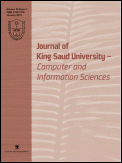
Journal of King Saud University-Computer and Information Sciences
Leading the Charge in Cutting-edge ResearchJournal of King Saud University-Computer and Information Sciences, published by ELSEVIER, is a prestigious open-access journal focusing on the rapidly evolving fields of computer science and information technology. Since its inception in 1996, this journal has provided a platform for high-quality research and innovative ideas, promoting the dissemination of knowledge to a global audience. With a remarkable impact factor and ranked Q1 in the Computer Science (miscellaneous) category as of 2023, it stands among the top 11% of journals in its field, reflecting its commitment to excellence and relevance. The journal proudly carries the ISSN 1319-1578 and E-ISSN 2213-1248, and it is based in Saudi Arabia while being part of a global academic network. With a Scopus rank of #26 out of 232 in general computer science, the Journal of King Saud University-Computer and Information Sciences is an essential resource for researchers, professionals, and students seeking to stay at the forefront of technological advancement. As it continues to thrive through 2024, it invites contributions that will shape the future of computing and information sciences.

Acta Universitatis Sapientiae Informatica
Connecting Scholars, Ideas, and InnovationsActa Universitatis Sapientiae Informatica, published by SCIENDO, is an esteemed open-access journal in the field of computer science and informatics. Since its transition to open access in 2013, the journal has fostered an inclusive academic environment that allows researchers, professionals, and students to freely access cutting-edge research and innovations. With its ISSN 1844-6086 and E-ISSN 2066-7760, Acta Universitatis Sapientiae Informatica aims to disseminate high-quality scholarly articles that cover a broad scope of topics ranging from theoretical foundations to practical applications in informatics. Located in Warsaw, Poland, the journal serves as an essential platform for advancing the discourse in computer science, thus playing a critical role in both regional and international research communities.

Evolutionary Intelligence
Exploring the Synergy of Intelligence Across DisciplinesEvolutionary Intelligence is a prestigious journal published by Springer Heidelberg, dedicated to the interdisciplinary study of Artificial Intelligence, Cognitive Neuroscience, Computer Vision, and Mathematics. With its ISSN 1864-5909 and E-ISSN 1864-5917, the journal has established a significant presence in the academic community since its inception in 2008. Spanning a diverse range of topics relevant to both theoretical and empirical research, it has achieved impressive rankings, including Q3 in Artificial Intelligence and Cognitive Neuroscience, and Q2 in Computer Vision and Pattern Recognition as of 2023. With a strong Scopus ranking that places it in the top quartiles of its field, Evolutionary Intelligence serves as an essential platform for scholars and practitioners seeking to advance knowledge and foster innovation in these dynamic fields. Researchers, professionals, and students alike will find invaluable insights and cutting-edge findings that challenge existing paradigms and inspire future explorations in intelligence-related studies.